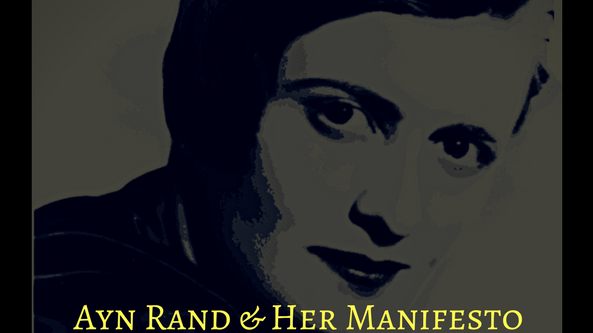Asia and the Emerging International Trading System or perhaps Asia AS the Emerging International Trading System, with more than 1/3 of the world’s population and more than 50% stakeholders in the global value chain, our (Asia’s) positioning in a post-colonial narrative has seen the global flexing of muscles with the US-China trade war causing flurried dialogues of geo-economic influences. Dutch Ambassador to India, Nepal and Bhutan, Martin Van Den Berg avers that “nationalist trade interests have turned to protectionism” and “negotiations are no longer about trade concerns but power politics.” According to Valentina Romei and John Reed who examined purchasing power parity (PPP) adjusted GDP data from the International Monetary Fund (IMF), “Asian economies, as defined by the UN trade and development body UNCTAD, will be larger than the rest of the world combined in 2020.” While External Affairs Minister, Dr. S Jaishankar asserts, “Trade and other forms of economic growth are critical elements of creating more effective multipolarity”, Consul General of the People’s Republic of China, Tang Guocai suggests that “the spirit of global village comes before the global value chain.”
Even as the rising fear of Coronavirus has caused stock markets to dip and affected the free movement of persons, sovereign powers entangled in an increasingly interdependent financial network cannot ignore Asia’s presence as a growing skilled workforce and a mammoth market. For Pearl Group CFO, Sanjay Gandhi, the question is “how do you bring the continuation of business?” Dr. S Jaishankar suggests that, “Competing against those with structural advantages cannot be a casual decision justified by political correctness. There is interest in the world to create additional drivers of growth while ensuring a global strategic balance.”

Held at the J.W. Marriot Hotel in Pune between 28th February to 1st March 2020, the three-day inaugural session organized by the Indian Ministry of External Affairs (MEA) and the Pune International Centre (PIC) considered the push-pull of the periphery towards the centre as represented by existing flaws in the international trading system and its multinational bureaucracy of the World Trade Organisation (WTO), the World Bank, and the United Nations. Former Asst. Secretary General and Deputy Executive Director of UN Women, Lakshmi Puri asserts it is imperative to “change the unequal exchange as represented by the centre-periphery model of trade” for an “equitable multilateral system”

Featuring speakers ranging from government officials from India, Maldives, and Sri Lanka; industry leaders, international dignitaries, and diplomatic experts, the geo-economic conference offered a mélange of perspectives. While the Indian central government was ably represented by Dr. Hardeep Singh Puri (NITI Aayog), Dr. R.S. Sharma (Chairman, TRAI), Dr. Bibek Debroy (Chairman, Prime Minister Economic Advisory Council); Prof. Samir Brahmachari, founder Director of CSIR- Institute of Genomics & Integrative Biology, provided the representative frontier of scientific innovation in India. Aaditya Thackeray, Minister for Tourism, Environment & Protocol, Govt. of Maharashtra, exemplified the next generation of politicians already at the helm of state affairs. International dignitaries included the Amb. Zhang Xiangchen (Chinese Ambassador to WTO) and ministers from Maldives (Uz. Fayyaz Usmail) and Sri Lanka (Shehan Semasinghe).
As talks veered towards WTO reforms, Dr. Harsha Vardhana Singh, former Deputy Director-General at World Trade Organization, stated, “Given the fact that the US is unwilling to move ahead with the solutions suggested by the panel led by David Walker, plurilateral consensus is essential.” Even as the multi-faceted economic perspectives of developing countries (DCs) work towards gaining a strategic balance between nationalist trade interests and regional cooperation, technological innovations are breaking barriers to trade and sovereign borders. According to Dr. Kishore Mahbubani, Founding Dean of Lee Kuan Yew School of Public Relations and Singapore’s former permanent representative to the United Nations, “Balkans of Asia have succeeded due to the open regionalism approach such as ASEAN”. Dr. Mahbubani also suggested that the balancing factors in geopolitical dynamics will be cultural confidence, the historical legacy of Indians succeeding and very strong domestic government.

While the Indian polity has restored its electoral faith in the Narendra Modi government, former Lead Economist, World Bank, Dr. Jayanta Roy contended that “India has been a hesitant globalizer” and “comprehensive trade and logistics facilitation” is essential for the country’s growth as a leader in the global value chain. Dr. Shailesh Kumar, Chief Data Scientist, Reliance Jio, who wants to “democratize AI” suggested that “We need to Olafy or Uberify these (technological) solutions” and enhance “integration between producers of technology and the farmer or patient.”

As the world battles with the ramifications of Coronavirus and its implications on the global value chain, the Asia Economic Dialogue has just begun towards a multilateral system that considers geo-specific factors in trade negotiations including differential treatment for least developed countries, fair international arbitration processes and dispute settlements, and the considered accountability of the expansive digital economy. Dr. Rajiv Kumar, Vice-Chairman, NITI Aayog, is certain that “Asia should take its traditional position as thought leader of the world… and it is unarguable that Asia’s economic status should reverse to before colonial times. The question is if the global economy is ready for it?”
Image Source: Pune International Centre



















